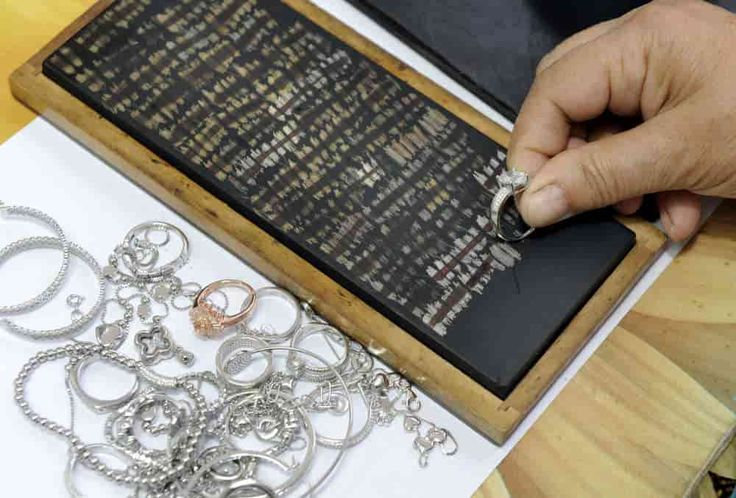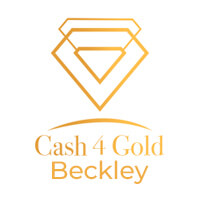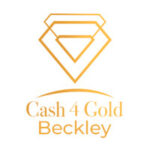How to Spot a Reputable Gold Buyer: What to Look for and What to Avoid

Thinking about selling your gold? You’re not alone. Whether it’s old jewelry gathering dust or scrap metal you no longer need, turning gold into cash can be tempting. But selling gold can be tricky. With so many options out there—from local shops to online buyers, it’s easy to fall for lowball offers, hidden fees, or worse, scams.
Many sellers rush into deals without knowing the true value of their gold or how to spot red flags, only to regret it later. This guide will walk you through how to find a reputable gold buyer, avoid common pitfalls, and ensure you walk away with a fair deal and peace of mind. Whether you’re selling old jewelry, broken pieces, or investment coins, knowing what to look for can make all the difference. Taking a few extra steps now can save you money and protect you from getting shortchanged.
Table of Contents
Understand the Basics: What Makes a Gold Buyer Reputable
A reputable gold buyer operates with clear, ethical standards and always puts transparency at the heart of their business. Before you even step into a shop or begin an online transaction, you should know what to expect from a trustworthy gold buyer.
First and foremost, they should evaluate your gold in front of you, explain how they determine purity and weight, and offer you a breakdown of how they arrived at their price. This creates a relationship of trust, rather than suspicion. Legitimate buyers will never pressure you into selling or rush you into a decision, and they’ll always answer your questions honestly and patiently.
According to Consumer Reports, many people unknowingly sell gold for far below its market value because they’re not aware of the buyer’s methods. That’s why being informed is your best defense. For additional insight into common seller pitfalls, check out Top Mistakes to Avoid When Selling Your Gold Jewelry. Knowing what not to do is often as important as knowing what to do right.
Licensing, Certification, and Industry Associations
A reputable gold buyer should be licensed to operate in their state or country. In the U.S., for example, gold buyers are often required to register with state or local authorities and follow specific consumer protection regulations. Ask to see their business license, and don’t hesitate to verify it online or with local authorities. Reputable businesses will proudly display their certifications and memberships in industry associations like the National Pawnbrokers Association (NPA)
Certification from organizations such as the GIA (Gemological Institute of America) or the American Numismatic Association can also indicate that a buyer has undergone training and follows professional standards. These affiliations are not just titles; they represent a level of accountability and trustworthiness. If your buyer can’t—or won’t provide proof of credentials, consider it a serious red flag.
Transparency in Pricing and Weight Evaluation
One of the clearest signs of a reputable gold buyer is full transparency when it comes to pricing. This includes explaining the current market rate for gold, how much your gold weighs, and how purity is assessed. A trustworthy buyer will test your items in front of you using an electronic gold tester, acid test, or XRF analyzer, and they’ll walk you through each step of the process. They should also clearly differentiate between karat types (e.g., 10K vs. 24K) and show how these affect the final offer.
According to Investopedia, you should always check the day’s gold spot price before visiting a buyer, and compare offers from at least two or three sources. This helps you understand whether the price you’re being offered is fair or just a lowball. Sellers should also avoid hidden fees—a common mistake discussed in Top 5 Things to Consider When Selling Scrap Metals Like Gold, Silver, and Platinum, where unexpected deductions often surprise the uninformed.
Ready to sell your scrap gold for top prices?
Check Reviews and Reputation
Before you decide to sell your gold, take some time to research reviews of the business. Look them up on Google, Yelp, and the Better Business Bureau to see what other customers have said. Pay attention to consistent patterns—both positive and negative. A buyer with many glowing reviews praising transparency, fair pricing, and professionalism is likely a good choice. On the other hand, if you find complaints about hidden charges, lowball offers, or shady behavior, it’s a sign to steer clear.
You can also check social media platforms like Facebook or community forums such as Reddit. Sometimes, smaller local buyers might not have a big online presence, but you can ask for word-of-mouth recommendations in your area. If you’re selling in person, visit the shop and observe how they treat customers before making any commitments.
Physical vs. Online Gold Buyers: What’s Safer?
The rise of online gold buying has opened up more options for sellers, but it also comes with risks. Online buyers often advertise higher payouts due to lower overhead, but not all platforms are equal. If you choose to go the digital route, only use websites that are fully insured, have secure shipping kits, and clearly explain their process. Reputable online buyers will provide free return shipping if you reject their offer and offer tracking throughout the process.
Physical locations offer the benefit of face-to-face communication and immediate payment, which some sellers prefer. If you go this route, make sure the business is well-reviewed and located in a secure area. Whether online or in-person, the most important thing is that the buyer is transparent, communicative, and credentialed.
Red Flags: What to Avoid at All Costs
Recognizing the red flags of a suspicious buyer can save you a lot of trouble and money. Avoid any buyer who refuses to evaluate your gold in front of you or gives vague answers about how pricing is calculated. Be wary of businesses that don’t have a physical address or customer service contact. Another common trick is using faulty or outdated scales, which can misrepresent the true weight of your items.
Additionally, be cautious if the buyer pressures you into selling quickly or offers a “limited-time” deal. Scammers often prey on urgency to stop you from doing your research. And never, under any circumstances, send your gold in the mail without a fully insured, trackable method of shipment.
Top Questions to Ask a Gold Buyer Before Selling
Asking the right questions can help you gauge a buyer’s professionalism and integrity. Here are a few to consider:
- Are you licensed and insured?
- How do you evaluate gold purity and weight?
- What’s today’s spot price, and how is your offer calculated from that?
- Do you have any certifications or affiliations?
- Can I watch the testing process?
- Are there any fees or deductions?
- Do you provide written offers?
A reputable gold buyer won’t hesitate to answer these questions. They’ll likely appreciate your thoroughness; it shows you’re informed, and that you expect a fair deal.
Comparing Reputable vs. Suspicious Buyers
Criteria | Reputable Buyer | Suspicious Buyer |
Testing Process | Done in front of the seller with a clear explanation | Hidden or unclear process |
Pricing Transparency | Offers based on the current market rate | Vague pricing or too-good-to-be-true offers |
Certification & Licensing | Displayed and verifiable | Refuses or dodges questions about credentials |
Reviews & Reputation | Positive reviews on verified platforms | Negative or no reviews, sketchy feedback |
Physical or Online Presence | Legitimate storefront or secure, well-rated website | No verifiable address or contact info |
Customer Service & Communication | Prompt, polite, and informative | Pushy, evasive, or unprofessional |
Frequently Asked Questions
No, most reputable gold buyers will evaluate the purity and weight of gold regardless of its cleanliness. Cleaning may not impact the price.
Yes, especially if you’ve received multiple offers. Many buyers are open to negotiation if you can demonstrate knowledge of your gold’s value.
When market prices are high. Keep an eye on the gold spot price and sell during favorable market conditions.
The easiest way to test if your gold is real or not is either the lighter method, the vinegar method, using a magnet, or unglazed ceramic. These methods are safe and will give you a good way to tell if your gold is real or not.
Scratch Test: Real gold leaves a gold streak when scratched against a ceramic plate. If the streak is black, it’s likely fake. Float Test: Drop your chain in a bowl of water. Real gold is dense and should sink
Final Thoughts
Selling gold can be a smart move, but only if you take the time to educate yourself. By knowing what to look for in a reputable buyer and what to avoid, you increase your chances of walking away with a deal that’s fair, safe, and rewarding. Whether you’re parting with old jewelry or looking to sell scrap gold in Beckley, it’s essential to compare offers, do your research, and never rush the process. With the right information and a little due diligence, selling your gold doesn’t have to be stressful—it can be empowering.

